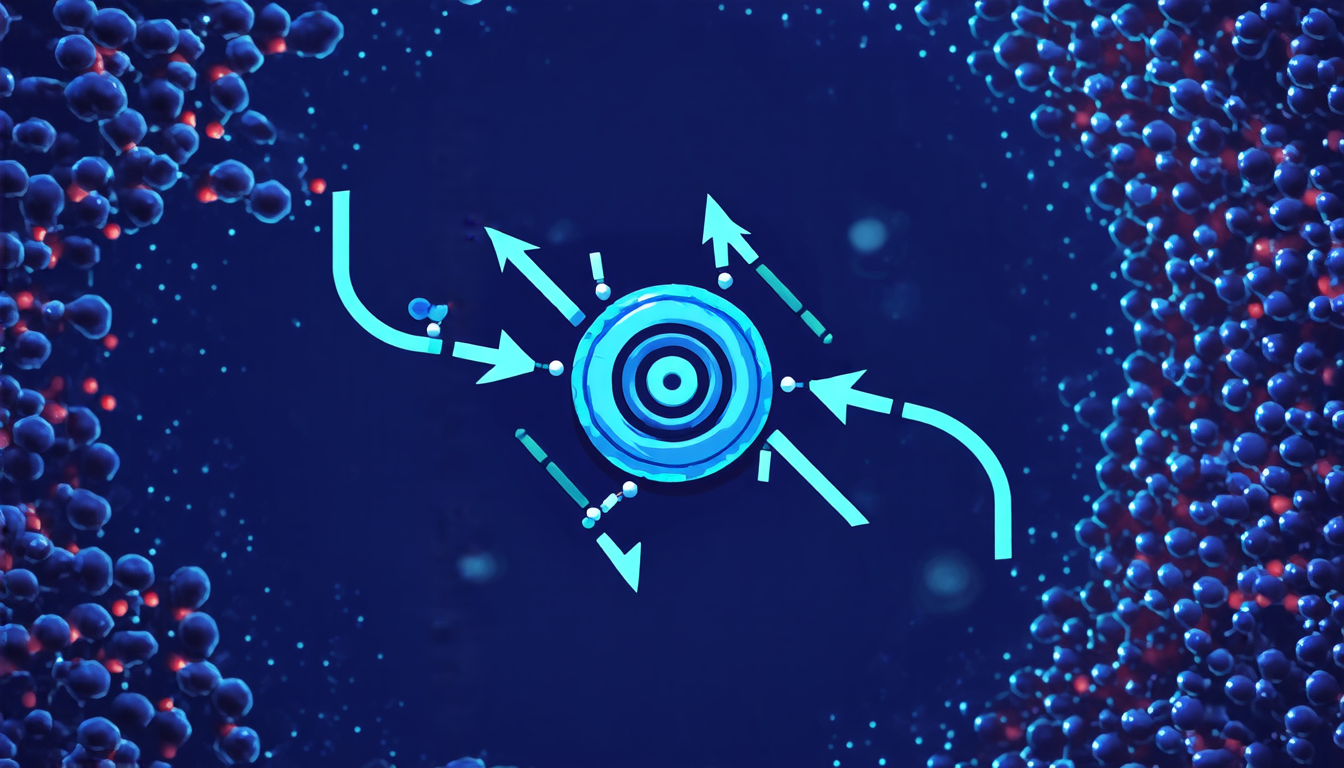Wednesday 09 April 2025
Scientists have long been fascinated by the intricate workings of molecular motors, tiny machines that power many biological processes within our cells. These microscopic marvels convert chemical energy into mechanical work to drive functions such as protein synthesis and DNA replication. Now, researchers have made a significant breakthrough in understanding how these motors operate using thermodynamic principles.
Molecular motors are incredibly efficient, but their mechanisms remain largely unexplored due to their tiny size. By applying principles from stochastic thermodynamics, scientists can now infer the thermodynamic properties of these motors without directly observing them. This approach uses statistical methods to analyze the fluctuations in energy conversion, providing valuable insights into the motor’s behavior.
The research team used a theoretical framework based on martingale theory to develop a new strategy for inferring thermodynamic properties from limited information. They applied this method to a simple model of the F1-ATPase rotary molecular motor, a crucial component of cellular energy production. The results demonstrated that the approach can accurately estimate several key quantities, such as the rotational work performed by the motor and its effective environmental temperature.
These findings have significant implications for our understanding of biological systems. By developing new strategies to analyze the thermodynamic properties of molecular motors, scientists can gain a deeper appreciation for the intricate mechanisms governing cellular processes. This knowledge may also lead to advances in biotechnology, as we strive to develop more efficient and targeted treatments for diseases.
The research team’s innovative approach has opened up new avenues for studying the thermodynamics of biological systems. By combining theoretical models with experimental data, scientists can now better understand how molecular motors operate within our cells. This knowledge may ultimately lead to breakthroughs in fields such as medicine, biotechnology, and synthetic biology.
In a remarkable achievement, researchers have successfully bridged the gap between theoretical physics and biological systems. Their work has shed new light on the intricate workings of molecular motors, providing valuable insights into the thermodynamic principles that govern their behavior. As scientists continue to explore these tiny machines, we can expect even more exciting discoveries in the years to come.
Cite this article: “Unraveling the Secrets of Molecular Motors: A New Perspective on Energy Conversion and Entropy Production”, The Science Archive, 2025.
Molecular Motors, Thermodynamics, Biological Systems, Cells, Protein Synthesis, Dna Replication, Stochastic Thermodynamics, Martingale Theory, F1-Atpase, Rotary Motor







